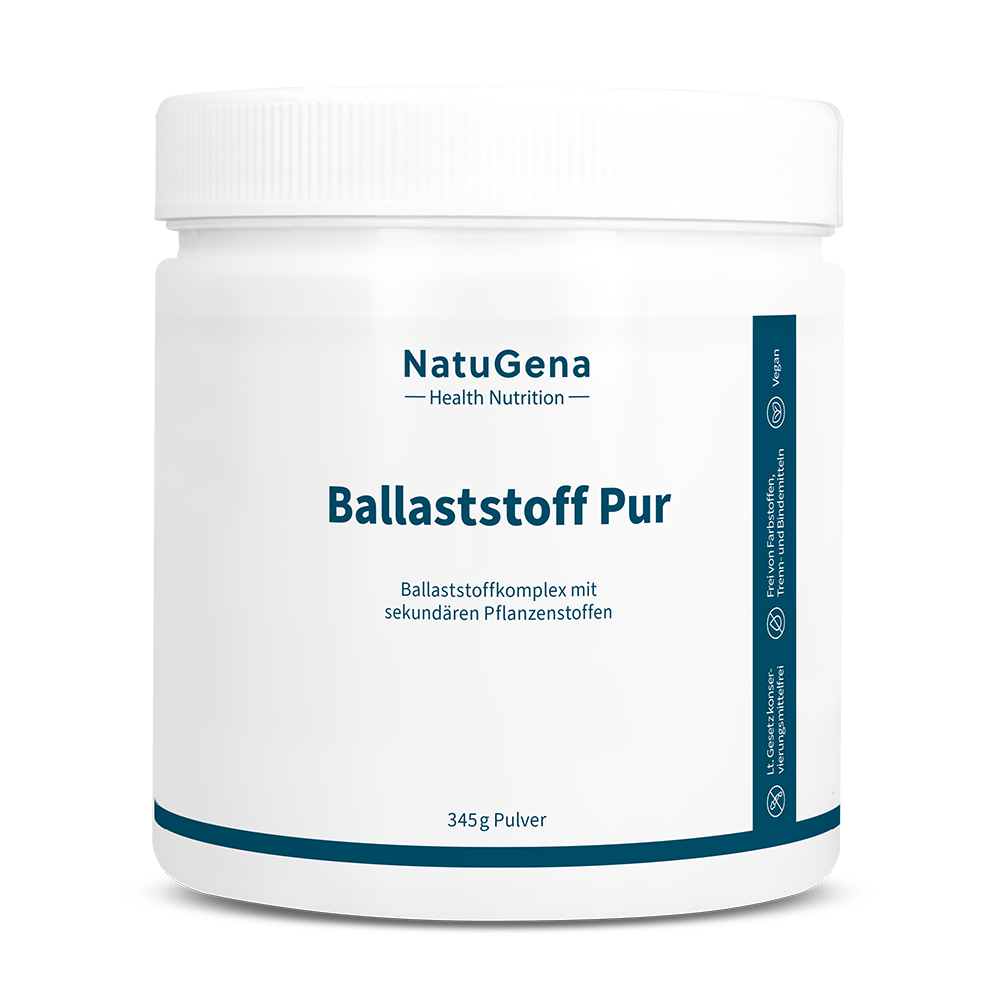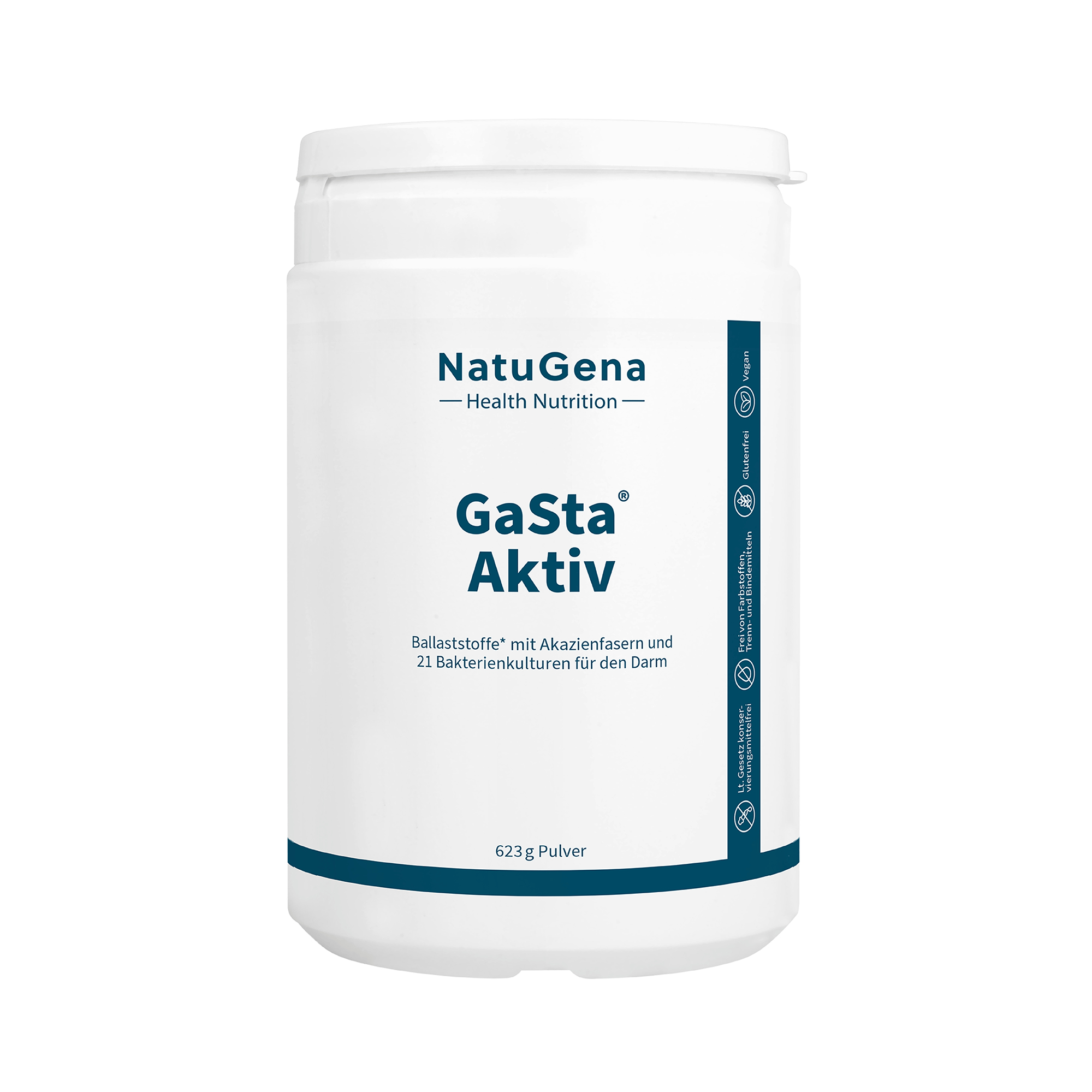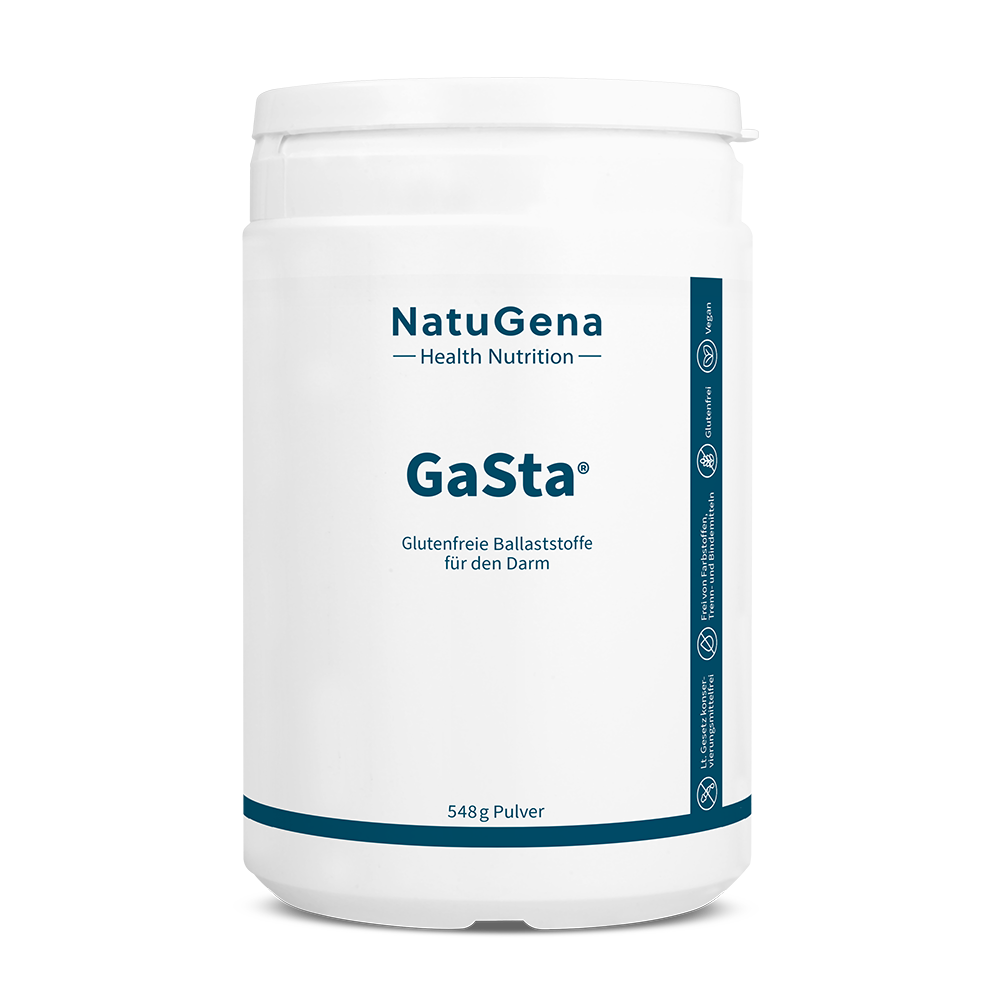Besides the immune system, it is mainly the intestinal mucosa and the body's own intestinal flora that protect our organism from harmful substances that enter our intestines every day through food.
In particular, the intestinal flora with its billions of health-promoting bacteria such as, among others. Bifidobacteria and lactobacilli, among others, effectively protect our body from the harmful effects of undesirable substances and molecules.
In order for the intestinal bacteria to be able to functionally protect our organism, these effective microorganisms must be present in sufficient numbers in our intestines.
The number of bacterial cultures depends to a large extent on their food supply. The main food source of the intestinal bacteria are food components that are indigestible for humans and primarily dietary fibres.
But dietary fibres are not tolerated equally well by all people. These fibre intolerances often result in a feeling of fullness, abdominal pain, flatulence and/or unpleasant diarrhoea.
BallastPur consists entirely of dietary fibres, which are fermented particularly slowly in the intestine. This means that the dietary fibres contained are not broken down too quickly by the intestinal flora.
This property makes the product BallaststoffPur particularly suitable for sensitive digestive systems.
In addition, BallaststoffPur contains the secondary plant substances curcuma, quercetin and polyphenols of green tea extract for optimised modulation of the intestinal microbiome.
Ingredient highlights presented:
- hydrolysed guar gum
- fructo-oligosaccharides
- resistant dextrin
- acacia fibre
Guar gum
Guar gum is obtained from the seeds of the guar bean originally from India and Pakistan.
The flour consists mainly of vegetable mucilage which has the property of binding large amounts of water.
Thanks to its high fibre density, guar gum reduces the natural appetite, ensures a quick feeling of satiety and is therefore suitable for health-conscious diets.
Fructo-oligosaccharides (FOS)
Fructo-oligosaccharides are indigestible oligosaccharides and thus categorically belong to the multiple sugars.
These oligosaccharides are composed of one sucrose molecule and several fructose molecules.
Functionally, the FOS serve as a nutritional basis for the effective intestinal bacteria. The special thing about FOS is that harmful intestinal bacteria as well as the human organism cannot utilise them.
Thus, FOS are an effective food basis for intestinal bacteria and can increase the number of bifidobacteria and lactobacilli when taken regularly.
Acacia fibre
Acacia fibre is derived from the trunk of the African acacia tree.
This natural dietary fibre consists of more than 80% soluble fibre and can sustainably promote the growth of beneficial intestinal bacteria as well as support digestion due to this property.
Resistant Dextrin
Resistant Dextrin (maize dextrin) is a soluble dietary fibre that is particularly well tolerated and does not burden the intestine with undesirable effects (e.g. flatulence), even when consumed in large quantities.
The dietary fibre serves as food for the intestinal bacteria. It thus supports the entire intestinal flora as well as the functionality of the intestinal mucosa.







